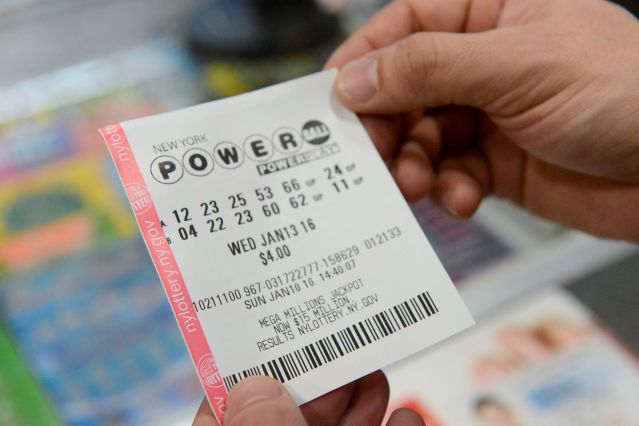Everyone’s got Powerball fever. After all, the prospect of winning over abilliondollars opens a lot of doors – notably, the “I can say whatever I want and don’t have to do anything I don’t want to doforever and forever” door. Still, not everyone is thrilled with the gambling mania gripping the country.
Writing for Salon, law professor Paul Campos flatly called Powerball a “national disgrace” that “exploits despair” of America’s working and poor classes. “Americans spent $70 billion on lottery tickets in 2014,” Campos explained. “Nearly half of Americans never play the lottery, and of those who do, around 70 percent of the tickets are bought by 20 percent of the players.” That highly active 20 percent spends, on average, about $1,800 per year on lottery tickets. RELATED: How to collect your Powerball winnings “By way of comparison, the average American spends $40 per year on movie tickets,” Campos added, “and $50 on books.”In his view, thelottery gives people living in misery an unhealthyescape from those doldrums – or, in his words, a de facto “tax” on poor people. One self-appointed “lottery watchdog” has even gone so far as to call Powerball an outright “scam.”
Dawn Nettles,founder of Geocities-esquewebsiteLotto Report,told the New York Daily News that since so many people bought tickets for the last drawing, somebody ought to have won – but didn’t. She pointed to the fact that “Quick Picks,” or letting Powerball machines randomly generate numbers,are often duplicated across the U.S. as a good reason why nobody’s won so far. RELATED: No winner of record Powerball jackpot, next draw put at $1.3 billion More to the point: Thouands ofPowerball players might all be unknowinglybuying the same losing numbered tickets. “This is a scam,” Nettles said to the Daily News. “With the odds being what they are, it’s a scam.” Those disturbing allegations notwithstanding, there’s a stark reality surrounding the lottery that can’t be denied: It generates literally billions of dollars for public programs across the nation. In Pennsylvania, for instance, all lottery proceeds benefit programs for senior citizens. Since its inception in 1972, the Pa. Lottery has generated $24.7 billion in funds for those programs. Likewise, New York and California both devote lottery proceeds toward public education. In California’s case, lottery players have contributed $28 billion to public schools since 1985; in New York, the games have generated a staggering $54.7 billion toward public education. In fact, New York’s lottery is so profitable, its revenues accounted for 14 percent of all state funding to local schools last year. Now, it’s true that many people who play the lottery are poor themselves. Business Insider even listed the reasons why the lottery might be “preying on America’s poor.” Some of the reasons included that poor people are more likely to play for money than entertainment and thatpeople with advanced degrees rarely play the lottery compared to folks without degrees. A 2008 study from CarnegieMellon University with recommendations for changing the way the lottery is executedput it more bluntly. “Lotteries [as they currently exist]set off a vicious cycle that not only exploits low-income individuals’ desires to escape poverty but also directly prevents them from improving upon their financial situation,” researchers said. Good luck.
Is the lottery a ‘scam’ that ‘exploits despair?’ Some researchers say yes

Reuters
















